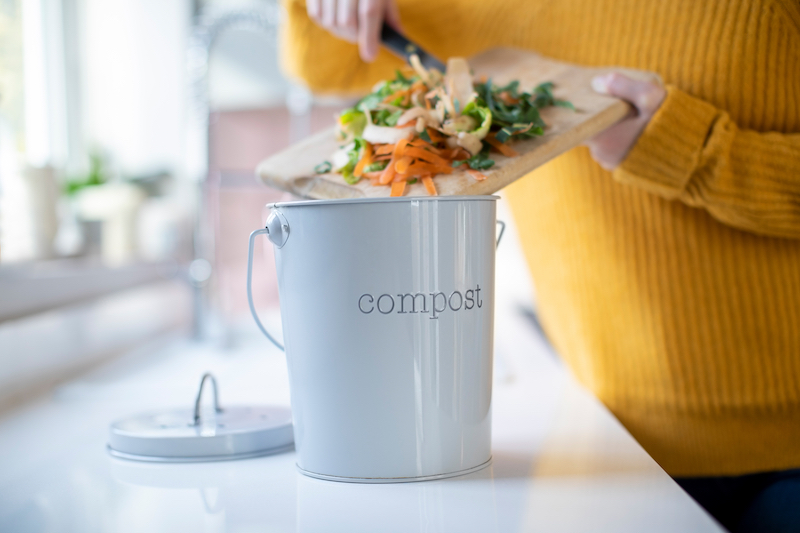Reduce, Reuse, Recycle

Continuing on this theme, let’s talk about composting. I’ve composted off and on for about ten years. Some years were better than others—as is often the case with life and competing objectives for time and effort. It all started with a friend who composted mainly for the benefit of creating ‘black gold’ for her gardens. This is a term often used for organic, natural compost. She kept a large bowl in the kitchen and instead of throwing away egg shells, potato peels, lemon rinds—you get the picture—she would collect them and take them outside to her compost bin. The bin wasn’t’ fancy—in fact her husband build it using four stakes and chicken wire. They built it in a sunny spot in the backyard and ‘cooked’ all the organic matter into compost by regular turning and tending. One of the benefits was all this material was kept out of the landfill and reused for the benefit of her beautiful gardens.
I had my own compost bin outside for many years, but it required more work than I had time to give it. In more recent years, I’ve found organizations in my area that will take my bucket of organic material collected from my kitchen and compost it. The idea is to work smarter not harder to figure out what solution works best for your situation.
Here are few more helpful ideas for composting:
- If you’re composting at home—make sure you are composting the right material—critters like to get into it. Here are 4: Fruit Scraps, Vegetable Scraps, Coffee grounds and Eggshells.
- If you’re taking your organic material to a composter, make sure you’re only putting materials in that they accept. Check their website for information.
- Make sure to take the little labels off fruits and vegetables—they are not compostable.
Any effort you put in will be rewarded by keeping organic material out of the landfill and repurposing it. Give yourself a HIGH FIVE for doing good for the environment.



0 Comments